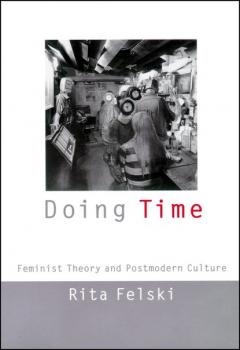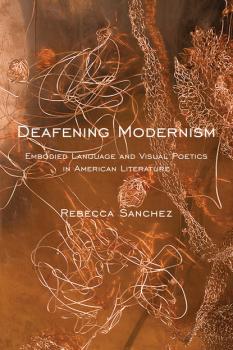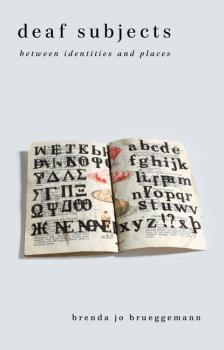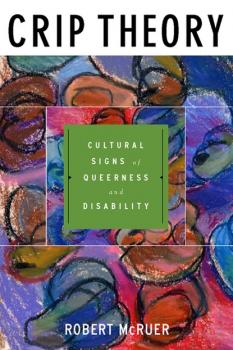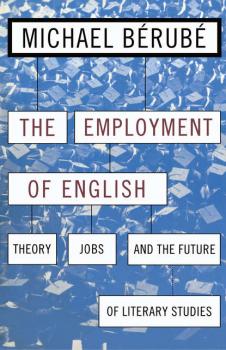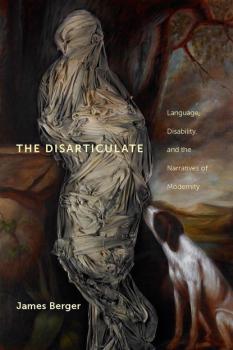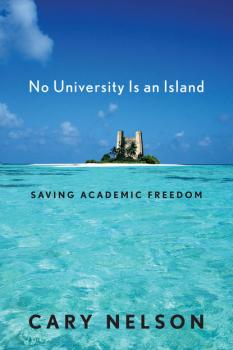ТОП просматриваемых книг сайта:
Cultural Front
Скачать книги из серии Cultural FrontАннотация
Contemporary theory is full of references to the modern and the postmodern. How useful are these terms? What exactly do they mean? And how is our sense of these terms changing under the pressure of feminist analysis? In Doing Time , Rita Felski argues that it makes little sense to think of the modern and postmodern as opposing or antithetical terms. Rather, we need a historical perspective that is attuned to cultural and political differences within the same time as well as the leaky boundaries between different times. Neither the modern nor the postmodern are unified, coherent, or self-evident realities. Drawing on cultural studies and critical theory, Felski examines a range of themes central to debates about postmodern culture, including changing meanings of class, the end of history, the status of art and aesthetics, postmodernism as «the end of sex,» and the politics of popular culture. Placing women at the center of analysis, she suggests, has a profound impact on the way we thing about historical periods. As a result, feminist theory is helping to reshape our vision of both the modern and the postmodern.
Информация о книге
Автор произведения Rita Felski
Жанр Управление, подбор персонала
Серия Cultural Front
Аннотация
A comprehensive assessment of the field of Disability Studies that presents beyond the medical to dig into the meaning From public transportation and education to adequate access to buildings, the social impact of disability has been felt everywhere since the passage of the Americans with Disabilities Act in 1990. And a remarkable groundswell of activism and critical literature has followed in this wake. Claiming Disability is the first comprehensive examination of Disability Studies as a field of inquiry. Disability Studies is not simply about the variations that exist in human behavior, appearance, functioning, sensory acuity, and cognitive processing but the meaning we make of those variations. With vivid imagery and numerous examples, Simi Linton explores the divisions society creates—the normal versus the pathological, the competent citizen versus the ward of the state. Map and manifesto, Claiming Disability overturns medicalized versions of disability and establishes disabled people and their allies as the rightful claimants to this territory.
Аннотация
Deafening Modernism tells the story of modernism from the perspective of Deaf critical insight. Working to develop a critical Deaf theory independent of identity-based discourse, Rebecca Sanchez excavates the intersections between Deaf and modernist studies. She traces the ways that Deaf culture, history, linguistics, and literature provide a vital and largely untapped resource for understanding the history of American language politics and the impact that history has had on modernist aesthetic production. Discussing Deaf and disability studies in these unexpected contexts highlights the contributions the field can make to broader discussions of the intersections between images, bodies, and text. Drawing on a range of methodological approaches, including literary analysis and history, linguistics, ethics, and queer, cultural, and film studies, Sanchez sheds new light on texts by T.S. Eliot, Ezra Pound, Gertrude Stein, William Carlos Williams, Charlie Chaplin, and many others. By approaching modernism through the perspective of Deaf and disability studies, Deafening Modernism reconceptualizes deafness as a critical modality enabling us to freshly engage topics we thought we knew. Deafening Modernism tells the story of modernism from the perspective of Deaf critical insight. Working to develop a critical Deaf theory independent of identity-based discourse, Rebecca Sanchez excavates the intersections between Deaf and modernist studies. She traces the ways that Deaf culture, history, linguistics, and literature provide a vital and largely untapped resource for understanding the history of American language politics and the impact that history has had on modernist aesthetic production. Discussing Deaf and disability studies in these unexpected contexts highlights the contributions the field can make to broader discussions of the intersections between images, bodies, and text. Drawing on a range of methodological approaches, including literary analysis and history, linguistics, ethics, and queer, cultural, and film studies, Sanchez sheds new light on texts by T.S. Eliot, Ezra Pound, Gertrude Stein, William Carlos Williams, Charlie Chaplin, and many others. By approaching modernism through the perspective of Deaf and disability studies, Deafening Modernism reconceptualizes deafness as a critical modality enabling us to freshly engage topics we thought we knew.
Аннотация
In this probing exploration of what it means to be deaf, Brenda Brueggemann goes beyond any simple notion of identity politics to explore the very nature of identity itself. Looking at a variety of cultural texts, she brings her fascination with borders and between-places to expose and enrich our understanding of how deafness embodies itself in the world, in the visual, and in language.Taking on the creation of the modern deaf subject, Brueggemann ranges from the intersections of gender and deafness in the work of photographers Mary and Frances Allen at the turn of the last century, to the state of the field of Deaf Studies at the beginning of our new century. She explores the power and potential of American Sign Language—wedged, as she sees it, between letter-bound language and visual ways of learning—and argues for a rhetorical approach and digital future for ASL literature.The narration of deaf lives through writing becomes a pivot around which to imagine how digital media and documentary can be used to convey deaf life stories. Finally, she expands our notion of diversity within the deaf identity itself, takes on the complex relationship between deaf and hearing people, and offers compelling illustrations of the intertwined, and sometimes knotted, nature of individual and collective identities within Deaf culture.
Аннотация
Featuring interviews with nineteen leading U.S. literary and cultural critics, Critics at Work offers a unique picture of recent developments in literary studies, critical theory, American studies, gay and lesbian studies, philosophy, and other fields. It provides informative, timely, and often provocative commentary on a broad range of topics, from the state of theory today and the prospects for cultural studies to the role of public intellectuals and the place of political activism. These conversations also elicit illuminating and sometimes surprising insights into the personal and professional lives of its contributors. Individually, each interview gives a significant overview of a critic's work. Taken together, they provide an assessment of literary and cultural studies from the establishment of theory and its diffusion, in recent years, into various cultural and identity studies. In addition to the interviews themselves, the volume includes useful short introductions to each critic's work and biography. Interviewees: K. Anthony Appiah, Lauren Berlant, Cathy Davidson, Morris Dickstein, Stanley Fish, Barbara Foley, Nancy Fraser, Gerald Graff, Alice Kaplan, E. Ann Kaplan, Robin D.G. Kelley, Paul Lauter, Louis Menand, Richard Ohmann, Andrew Ross, Eve Kosofsky Sedgwick, Jane Tompkins, Marianna Torgovnick, and Alan Wald.
Аннотация
A bold and contemporary discourse of the intersection of disability studies and queer studies Crip Theory attends to the contemporary cultures of disability and queerness that are coming out all over. Both disability studies and queer theory are centrally concerned with how bodies, pleasures, and identities are represented as “normal” or as abject, but Crip Theory is the first book to analyze thoroughly the ways in which these interdisciplinary fields inform each other.Drawing on feminist theory, African American and Latino/a cultural theories, composition studies, film and television studies, and theories of globalization and counter-globalization, Robert McRuer articulates the central concerns of crip theory and considers how such a critical perspective might impact cultural and historical inquiry in the humanities. Crip Theory puts forward readings of the Sharon Kowalski story, the performance art of Bob Flanagan, and the journals of Gary Fisher, as well as critiques of the domesticated queerness and disability marketed by the Millennium March, or Bravo TV’s Queer Eye for the Straight Guy . McRuer examines how dominant and marginal bodily and sexual identities are composed, and considers the vibrant ways that disability and queerness unsettle and re-write those identities in order to insist that another world is possible.
Информация о книге
Автор произведения Robert McRuer
Жанр Управление, подбор персонала
Серия Cultural Front
Аннотация
What sorts of cultural criticism are teachers and scholars to produce, and how can that criticism be «employed» in the culture at large? In recent years, debates about the role and direction of English departments have mushroomed into a broader controversy over the public legitimacy of literary criticism. At first glance this might seem odd: few taxpayers and legislators care whether the nation's English professors are doing justice to the project of identifying the beautiful and the sublime. But in the context of the legitimation crisis in American higher education, the image of English departments has in fact played a major role in determining public attitudes toward colleges and college faculty. Similarly, the changing economic conditions of universities have prompted many English professors to rethink their relations to their «clients,» asking how literary study can serve the American public. What sorts of cultural criticism are teachers and scholars to produce, and how can that criticism be «employed» in the culture at large? In The Employment of English, Michael Bérubé, one of our most eloquent and gifted critics, examines the cultural legitimacy of literary study. In witty, engaging prose, Bérubé asserts that we must situate these questions in a context in which nearly half of all college professors are part-time labor and in which English departments are torn between their traditional mission of defining movements of literary history and protocols of textual interpretation, and their newer tasks of interrogating wider systems of signification under rubrics like «gender,» «hegemony,» «rhetoric,» «textuality» (including film and video), and «culture.» Are these new roles a betrayal of the field's founding principles, in effect a short-sighted sell-out of the discipline? Do they represent little more that an attempt to shore up the status of–and student enrollments in–English? Or are they legitimate objects of literary study, in need of public support? Simultaneously investigating the economic and the intellectual ramifications of current debates, The Employment of English provides the clearest and most condensed account of this controversy to date.
Аннотация
Language is integral to oursocial being. But what is the status of those who stand outside of language?The mentally disabled, “wild” children, people with autism and otherneurological disorders, as well as animals, infants, angels, and artificialintelligences, have all engaged with language from a position at its borders.In the intricate verbal constructions of modern literature, the‘disarticulate’—those at the edges of language—have, paradoxically, playedessential, defining roles. Drawing on the disarticulate figures inmodern fictional works such as Billy Budd, The Sound and the Fury,Nightwood, White Noise, and The Echo Maker, among others,James Berger shows in this intellectually bracing study how these charactersmark sites at which aesthetic, philosophical, ethical, political, medical, andscientific discourses converge. It is also the place of the greatest ethicaltension, as society confronts the needs and desires of “the least of itsbrothers.” Berger argues that the disarticulate is that which is unaccountablein the discourses of modernity and thus stands as an alternative to theprevailing social order. Using literary history and theory, as well asdisability and trauma theory, he examines how these disarticulate figuresreveal modernity’s anxieties in terms of how it constructs its others.
Аннотация
The modern university is sustained by academic freedom; it guarantees higher education’s independence, its quality, and its success in educating students. The need to uphold those values would seem obvious. Yet the university is presently under siege from all corners; workers are being exploited with paltry salaries for full-time work, politics and profit rather than intellectual freedom govern decision-making, and professors are being monitored for the topics they teach. No University Is an Island offers a comprehensive account of the social, political, and cultural forces undermining academic freedom. At once witty and devastating, it confronts these threats with exceptional frankness, then offers a prescription for higher education’s renewal. In an insider’s account of how the primary organization for faculty members nationwide has fought the culture wars, Cary Nelson, the current President of the American Association of University Professors, unveils struggles over governance and unionization and the increasing corporatization of higher education. Peppered throughout with previously unreported, and sometimes incendiary, higher education anecdotes, Nelson is at his flame-throwing best.The book calls on higher education’s advocates of both the Left and the Right to temper conviction with tolerance and focus on higher education’s real injustices. Nelson demands we stop denying teachers, student workers, and other employees a living wage and basic rights. He urges unions to take up the larger cause of justice. And he challenges his own and other academic organizations to embrace greater democracy.With broad and crucial implications for the future, No University Is an Island will be the benchmark against which we measure the current definitive struggle for academic freedom.
Аннотация
Drawing on a variety of interdisciplinary debates in cultural studies and contemporary theory, Modernism, Inc . provides a new look at the relationship between modernism and postmodernism within the critical frame of twentieth-century American culture. Organized around the idea of «incorporation»–embodiment, repressed memory, and advanced capitalism– Modernism, Inc . covers a wide range of topics: Josephine Baker's «hot house style»; the president's penis in American political life; myth-making and the Hoover Dam; trauma, poetics, and the Armenian genocide; feminist kitsch and the recuperation of North America's «Great Lady painters»; Gertrude Stein and Jewish Social Science; the Reno Divorce Factory and the production of gender; Andy Razaf and Black Bolshevism. Collectively, the essays suggest that the relationship between the modern and the postmodern is not one of rupture, belatedness, dilution, or extremity, but of haunting. Modernism, Inc . looks at our ghosts, and at the unspeakable secrets of modernity from which they're derived. Contributors: Maria Damon, Walter Kalidjian, Walter Lew, Janet Lyon, William J. Maxwell, Cary Nelson, John Timberman Newcombe, David G. Nicholls, Thomas Pepper, Paula Rabinowitz, Daniel Rosenberg, Marlon Ross, Jani Scandura, Kathleen Stewart, Julia Walker.

